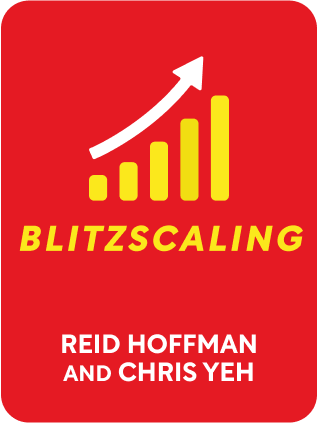

This article is an excerpt from the Shortform book guide to "Blitzscaling" by Reid Hoffman and Chris Yeh. Shortform has the world's best summaries and analyses of books you should be reading.
Like this article? Sign up for a free trial here .
What’s more profitable— to open a physical store or grow an online business venture? What are the most common features of successful online businesses?
According to Reid Hoffman, the author of Blitzscaling, it’s much more profitable to grow an online business than to run a physical store. There are many reasons for this but the biggest is that there are virtually no overhead or advertisement costs when you’re selling software.
Keep reading for more reasons on why you should grow an online business rather than a physical one.
Proven Business Model Patterns
Whether you’re trying to open a physical store or grow a business online, you need to choose an effective business model. Some business models are more likely to scale to large businesses than others. Open-source software has been successful on some counts – user count, technology improvement, network effects – but has rarely resulted in large businesses, with Redhat being an outlier.
Blitzscaling cites these patterns as common features of massive businesses:
Bits, Not Atoms
Being mostly software lets you scale with low marginal costs, increasing gross margin. It increases virality and speeds up product iteration. Global expansion is much easier.
Working with atoms raises marginal cost, thus slowing growth and reducing gross margins.
Examples
- AdWords lets small businesses pay $5 for a small search ad campaign. Forget doing this with TV commercials, which require far more coordination with people, and thus requires high minimum purchases.
- Netflix can maintain a huge back catalog of tens of thousands of content pieces, available on demand. TV stations and physical rentals come nowhere close.
Platforms
Build technology that enables others to build on top of yours and service users themselves. You capture some of the value you create.
Examples
- Operating systems like Windows and iOS
- Social networks like Facebook and WeChat
- Software platforms like Unreal Engine for gaming or AWS.
Free or Freemium
Set the price free to grow through virality and network effects. Capture some value by charging premium users for extra features or by serving ads.
Examples
- Ad-supported products (like Google, Facebook) are free for users.
- Dropbox and many SaaS companies are free to use, with limits.
Marketplaces
Match buyer and seller. Network effects are at play.
Larger marketplaces achieve liquidity better, which increases the number of successful transactions and create more value.
Examples
- eBay, Airbnb, Uber, Steam, Google AdWords.
Subscriptions
SaaS was an innovation beyond traditional on-site software deployment, which required costly installation and servicing. Because of subscription’s lower servicing costs, it allowed targeting smaller businesses.
Recurring subscriptions tend to have more predictable revenue, as opposed to large software releases. This predictable revenue allows more aggressive long-term investments.
Digital Goods
Digital goods have no literal value, but do have emotional value to its users. They tend to have nearly 100% gross margins.
Examples
- Japanese messaging app LINE’s stickers
- Cosmetics items in video games.
Feeds
Present a constantly updating set of information to increase engagement. Learn what the users like or dislike to improve the feed and to target more compelling ads.

———End of Preview———
Like what you just read? Read the rest of the world's best book summary and analysis of Reid Hoffman and Chris Yeh's "Blitzscaling" at Shortform .
Here's what you'll find in our full Blitzscaling summary :
- How to build a company that grows to a large size very quickly
- Why you have to ignore efficiency and profit for speed
- How companies like Facebook, Uber, and Airbnb were able to blitzscale






